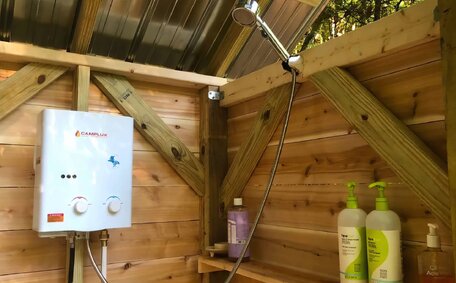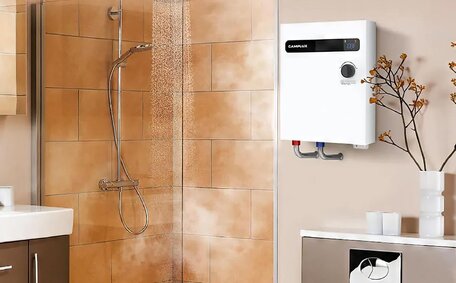Introduction to Preventing Blocked Sink Drains
Blocked sink drains are an all too common nuisance that plague households across Cranebrook. From congested kitchen sinks to clogged bathroom drains, these obstructions can quickly disrupt our daily routines and damage plumbing infrastructure if left unchecked.
As your trusted local plumbing experts, Cranebrook Plumbing is here to help keep your drains free-flowing and your pipes pristine. Applying a few simple preventive maintenance steps can spare you the hassle and expense of a blocked drain down the line.
In this guide, we’ll outline several tips to stop sink drain blockages before they start. From pouring hot water to installing screens and cleaning pipes regularly, these straightforward methods will optimise drainage and prevent costly plumbing emergencies.
Use Drain Strainers to Catch Debris
Installing drain strainers or screens is one of the simplest and most effective ways to catch food scraps, hair, and debris before they can clog your drains. Designed to fit snugly inside sink drains, these removable strainers feature small perforations that allow water to pass through while trapping solids.
Strainers are essential for kitchen sinks, where food particles from washing dishes, rinsing produce, and draining pasta water can quickly accumulate. Positioning strainers over the drain catches stray scraps, preventing them from jamming pipes.
Likewise, strainers for bathroom sink drains stop globs of hair and soap residue from funnelling down. Over time, these materials intertwine and harden into obstructions. Strainers capture the debris at the source, keeping drain lines clear.
To work effectively, check strainers regularly and empty any accumulated gunk into the trash. Rinsing debris down the drain defeats the purpose. With routine maintenance, strainers provide invaluable protection against slow drains and backups.
Avoid Pouring Grease and Food Down the Drain
One of the biggest culprits of blocked drains is pouring fats, oils and food scraps down the sink. As grease cools, it congeals into thick gunk that coats pipes. Food particles and solids get trapped in this greasy film, amalgamating over time into a substantial clog.
To prevent grease blockages, refrain from pouring cooking oils or bacon fat directly down drains after use. First, let greasy liquids fully solidify, then discard in the garbage. Use paper towels to wipe pans coated in oil or grease before washing to lessen the amount funnelled down drains.
Likewise, avoid sending food remnants like coffee grounds, rice or pasta down the sink. Scrape and rinse plates into the bin before washing to keep drains clear. Install a strainer or filter in the drain to catch stray particles, and empty into the trash when full.
Blocked drains caused by grease and food buildup often require professional plumbing services to resolve, so implementing these preventive habits will help avoid costly repairs down the line. A few small changes in your kitchen routine can spare you the headache of obstructions or backups.
Flush Pipes with Baking Soda and Vinegar
A simple yet highly effective method to keep drains free of blockages is flushing pipes weekly with baking soda and vinegar. The chemical reaction between the baking soda (sodium bicarbonate) and vinegar (acetic acid) produces bubbles and fizz that help dislodge gunk and buildup.
To flush your pipes, start by pouring 1 cup of baking soda down the kitchen, bathroom or other drain you wish to clean. The fizzing action will help break down oils, grease, hair and other debris that accumulate internally along pipe walls over time.
Next, add 1 cup of vinegar and let the mixture foam and bubble for 5-10 minutes. Finally, run hot water for a few minutes to rinse away any loosened particles.
Flushing your drains weekly with this DIY approach cleans pipes in a safe, economical way without using harsh chemicals. The ingredients are readily available in any household. Just remember to always pour the baking soda in first before adding vinegar to activate the bubbly scouring effect.
Implementing this maintenance can prevent serious obstructions before they happen. However, if you have a persistent clogged drain that this method cannot clear, contact the expert plumbers at Cranebrook Plumbing for professional drain cleaning services.
Have Regular Professional Drain Inspections
While diligent at-home maintenance is crucial, having a professional plumbing inspection of your drains on a regular basis is highly recommended. Annual inspections allow a licenced plumber to thoroughly examine the entire drainage system with specialised tools and detect issues early on before they escalate.
A comprehensive drain inspection involves running a drain camera through pipes to check for cracks, leaks, obstructions, and other damage that may not be noticeable yet. Professionals can also hydro jet drains to scour the inside of pipes and remove accumulated gunk and buildup.
During an inspection, plumbers check water pressures, drain functionality, and the overall condition of plumbing infrastructure. They can advise if sections of pipe need replacement, recommend drain cleaning, or spotlight potential problem areas to monitor.
By catching small problems before they worsen, proactive drain inspections prevent severe and costly blockages down the line. They also provide helpful peace of mind knowing that a licenced expert has thoroughly examined your plumbing health.
For professional drain inspections and plumbing services, Cranebrook Plumbing offers comprehensive solutions tailored to your home. Contact our team today to schedule routine maintenance.
Trim Roots and Plants Away from Plumbing
Overgrown roots and encroaching plants can spell trouble for plumbing systems. As vegetation spreads, roots seek out any source of water – including buried water pipes and sewer lines. When roots penetrate underground plumbing, they can cause major blockages, breaks, leaks, and other damage.
The best way to prevent plumbing issues from plant roots is to keep them well away from your home’s drainage system. If you already have plants close to plumbing, trim roots and stems at least 3 feet back from pipes.
Avoid planting trees, shrubs, or dense vegetation near sewer lines or areas where pipes run underground.
Check any external cleanout caps regularly for protruding roots that may work their way into openings. Hire a professional plumber annually to snake accessible drainage lines and cut intruding roots using special augers. Hydro jetting pipes can also clear stubborn root obstructions.
If you suspect root growth has invaded plumbing lines, signs include gurgling drains, sewer gas odours indoors, slowed drainage and frequent clogs. Severe root infestations require drain replacement to fully resolve.
With some preventive landscape maintenance and keeping vegetation a safe distance from your home’s underground plumbing, you can avoid destructive and expensive root-related problems down the drain.
Check Joints and Connections for Leaks
Loose joints and faulty connections in plumbing systems can be a sneaky source of trouble. Small leaks may go unnoticed at first, but over time, the escaping water can weaken pipes, corrode fixtures and cause extensive damage.
To help stop leaks before they start, inspect all accessible pipe joints, compression fittings, and connections annually. To help stop leaks before they start, inspect all accessible pipe joints, compression fittings, and connections annually.
Check under sinks, behind appliances, and at shutoff valves. Watch for signs of moisture or lime buildup.
Persistent dampness under sinks and tubs can also be a red flag.
If you suspect a leak but can’t locate it, a professional plumber can use specialised leak detection equipment to pinpoint the source. For pipes concealed in walls or floors, check for wet spots or discoloration on surfaces that may indicate hidden leaks.
Repairing drips and leaks as soon as they are detected prevents the trickle from becoming a flood. Proactive maintenance checks will help keep plumbing connections watertight and prevent leaks from causing havoc down the line.
Use Hair Catchers to Prevent Clogs
One of the most frustrating blockages in bathroom sinks and showers comes from hair buildup over time. As strands of hair rinse down the drain, they can cling together and slowly form a dense mass that impedes water flow.
Installing hair catchers or drain screens provides an easy solution to this common problem. Sitting within or over the drain grate, these devices feature small holes or slits that allow water to pass through while efficiently collecting loose hair. Hair catchers come in basic circular shapes as well as fun decorative designs.
To work properly, hair catchers must be cleaned out regularly. Simply remove the device and pull out any wadded hair, disposing in the trash.
Proper maintenance prevents clogs. Rinsing hair down will defeat the purpose.
For sinks, position hair catchers near the rear of the drain for maximum effectiveness. In showers, drainage tends to flow from the back wall, so place catchers along the opposite side. Catch hair at the source before it can snake through pipes and cause obstructions.
While hair catchers are useful preventive tools, chronic drain clogs may require professional help. Contact Cranebrook Plumbing’s skilled technicians for power drain cleaning services to clear serious blockages.
Limit Use of Soap and Chemicals
While soaps and cleaning products are important for hygiene, excessive use can lead to trouble down the drain. An overabundance of suds, grease residue and harsh chemicals poured into sinks builds up and sticks to pipe walls over time.
Try limiting dishwashing and laundry to full loads, scraping dishes rather than pre-rinsing, and following product labels for recommended dosages. Avoid dumping straight chemicals like bleach, drain opener or ammonia into sinks as they corrode pipes.
For clogged drains, resist the temptation to continually dose with chemical drain cleaners. Though these may provide a temporary fix, they eat away at pipes and often exacerbate blockages when residues recongeal. Opt for mechanical drain cleaning instead.
Moderating use of soaps and chemicals, along with protective measures like screens and routine pipe cleaning, prevents buildup that leads to obstructions. Should clogs occur, the professional team at Cranebrook Plumbing has all the latest tools and expertise to restore free flowing drains.






